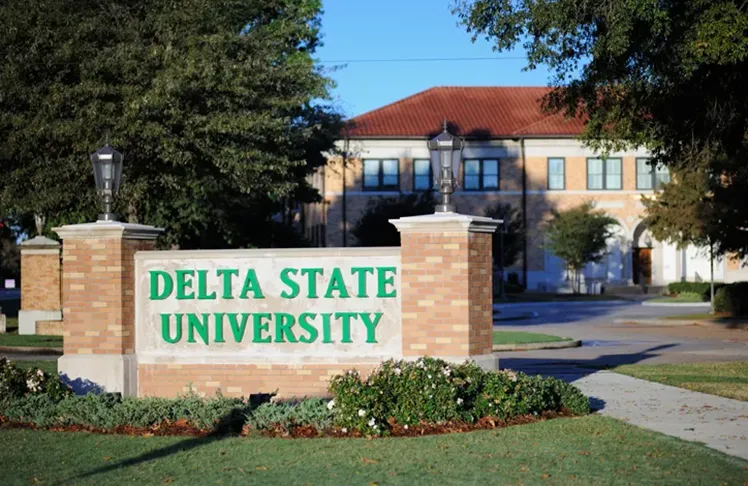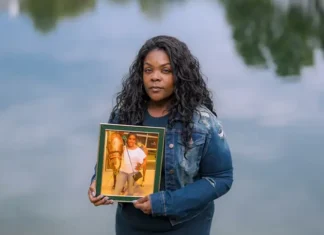
The historical seasons have changed, but another tree in Mississippi has borne more strange and bitter fruit. The body of a young Black man, a student at Delta State University, was found hanging from a tree last week.
Though officials have tentatively ruled the death of Demartravion “Trey” Reed, 21, a suicide, the grim discovery raised alarm on the small northwestern Mississippi campus. It also drew the attention of civil rights lawyer Benjamin Crump and social justice activist Colin Kaepernick.
Suspicion Rooted In the Painful Past
But Reed is one of the latest cases in a macabre, decade-long phenomenon of young Black men found dead in unusual places under questionable circumstances. It has also rekindled an ugly chapter in American history, when violent lynchings of Black men and women were common, but justice for them was not.
Reed’s body was found near the campus in Cleveland, Mississippi, just 30 miles from where Emmett Till’s mutilated body was found 70 years ago. When the news about Reed broke nationwide, rumors rocketed around social media that his limbs had been broken, even though authorities declared there were no signs of foul play.
Delta State president Dan Ennis acknowledged that the discovery of a body hanging from a tree in Mississippi has to be seen in a broader context: specifically, the racial terrorism that plagued Black people in the South for decades — and the white institutions that often fomented it.
“We recognize this is not only about facts,” Ennis, who is white, said during a press conference shortly after Reed’s death. “It’s about emotions and about feelings and the way this loss and how it was discovered affects people’s lives.”
Delta State has approximately 2,800 students, and roughly 40% of them are Black. Ennis said the campus has received threatening phone calls and messages since Reed’s death.
Student Marquon McKinney told reporters the death has shaken him.
“Everybody’s upset right now,” McKinney said, adding that he feels that university officials are trying to downplay the death. “It’s a lot of emotions going on.”
Transparency Is Crucial, But Not Guaranteed
Mari N. Crabtree, an African American studies professor at Emerson University in Boston, says the suspicion and mistrust swirling around Reed’s death is not surprising.
“What strikes me every time I hear a case like this is how there’s layers of memory that give meaning to these moments,” says Crabtree, author of “My Soul Is a Witness: The Traumatic Afterlife of Lynching.” “Although the facts have yet to prove it was murder, she says, “what has happened in the past is shaping how people are reacting — the kind of skepticism that people have.”
Michael Curtis, an assistant professor and researcher at the University of Minnesota, has extensively studied Black men and suicide. He says Reed’s death goes against the data: Black men who kill themselves are far more likely to use a gun behind closed doors than hang themselves in public.
“I also have a hard time believing [Reed committed suicide] on face value,” he says. For Black men, he says, “gun violence is the number-one thing. Hanging is very low and very uncommon. Not a lot of people who commit suicide make spectacles of it.”
According to data from the National Violent Death Reporting System, in 2020, there were a total of 2,308 suicides among Black men. Among those, nearly 60% died from a gunshot wound, while just 24% died from asphyxiation or hanging. Of that 24%, the overwhelming majority of them were found in a house or apartment (65%), followed by 14% who died in a jail or prison.
Of the more than 2,000 total suicides of Black males, just 34 were found outdoors, and only 10 were found in a tree or natural area.
When Reed was found around 7 a.m. on Sept. 16, the case drew widespread attention, skepticism, and demands for transparency. Reed’s family insists he wasn’t suicidal, but a preliminary examination by Bolivar County Coroner Randolph Seals Jr. reached no other conclusion.
Reed “did not suffer any lacerations, contusions, compound fractures, broken bones, or injuries consistent with an assault,” according to the report. The state’s chief medical examiner also confirmed Reed’s death as a suicide.
But the family’s doubts led them to retain Crump — arguably the country’s most influential civil rights lawyer. In a statement the day after Reed was found, Crump demanded that authorities in Mississippi conduct a full investigation.
“Trey Reed was a young man full of promise and warmth, deeply loved and respected by all who knew him,” according to Crump’s statement. “We cannot accept vague conclusions when so many questions remain. I stand with this family, and I will lead a team of civil rights leaders and organizations in pursuing transparency and answers for Trey’s family.”
Crump also announced that Kaepernick, the former NFL quarterback-turned-activist, will pay for an independent autopsy for Reed through his nonprofit Know Your Rights Camp Autopsy Initiative.
Reed’s death comes on the heels of backlash in the wake of Charlie Kirk’s murder last week and a steep increase in mental health problems among college students. Mental health experts stress that this incident will do lasting damage to the university and wider community.
Black Students Still Less Likely to Get Help
In 2021, nearly 60% of college students met criteria for one or more mental health issues — an almost 50% increase from when the study began in 2013.
By 2024, approximately 1 in 3 college students had a positive screening for at least one mental health disorder. This is an estimated 60% to 70% jump that happened over the course of the COVID-19 pandemic.
Although 45% of U.S. undergraduates identify as people of color, studies show students of color are less likely than their white peers to seek mental health treatment. Lack of financial resources, time to meet with therapists, and stigma were the most frequently reported barriers. ”















